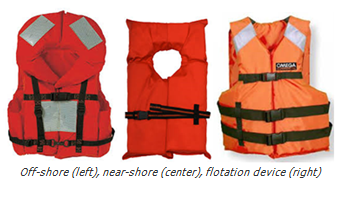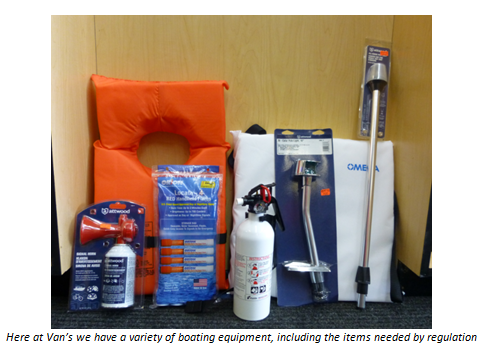Displaying items by tag: VSC
Boating Safety - Know Before You Go

As discussed previously, protecting your motor from ethanol is very important. However, even more important: protecting boat passengers by paying attention to boat safety. Recreational boating is a great way to pass the summer weekends, but a few quick and easy precautions can assure that you are doing so without risking the safety of you or your passengers. The US Coast Guard offers free Vessel Safety Checks, which is a great way to get peace of mind and assurance that you're cruising on a safe boat. Although there are certified examiners to do these checks, that doesn't mean you can't also check yourself. There are still many things that any Joe-Schmo can pay attention to when boating.

Life Jackets
Life Jackets may not be the comfiest - but wearing them is worth it. Enforced by the US Coast Guard, boats must carry one life Jacket, or personal flotation device (PFD), for each passenger. Also, any passenger under the age of 13 has to wear a life jacket. Not only is it important to have one, it is also important to have one that best matches your style of boating. There are five types of personal flotation devices: off-shore life jackets, near-shore life jackets, flotation aids, throw-able devices, and special-use devices. Although each type is meant to fulfill the same purpose, they have different advantages.
There are five types; however the most common PFDs are off-shore, near-shore, and flotation devices. Off-shore life jackets are the best for rough and remote waters because they provide the best buoyancy. Off-shore life jackets would be best when rescue may be delayed. Near-shore life jackets are better for inland and calmer waters; they only go around your neck so they're better for quick rescues. Flotation devices are the best for more freedom of movement; they're typically used for watersports because of this.
Lights, Signals, Fire Extinguisher
Along with life jackets, all vessels are required to have approved visual distress signals, fire extinguishers, and navigation lights. It is important to verify that your visual distress signals are not expired. While they still may be useful, they will not pass the U.S. Coast Guard regulations. For the fire extinguishers, it's important to make sure that they are in good, operable condition. At night, it is important to have the correct navigation lights; other boats on the water need to be able to spot you in the dark and vice versa. Not only are these three things important because of regulations, they will also help maintain safety while boating.

Correct Registration and Documentation
There are safety tips that protect you, and then there are safety tips that protect your time and fun. Failing to have correct documentation and visible registration can put a stop to your time on the water. Vessels must be visibly registered with display of registration numbers. Registration numbers must be visible in block letters, in a color that contrasts the back of the boat, and no smaller than 3 inches in height. Getting pulled over for a lack of registration would be quick way cut water time short, but it is also a very easy problem to avoid.
Vessel safety checks, offered by the U.S. Coast Guard, take a much closer look at the safety of your boat. Along with PFDs, registration, fire extinguishers, distress signals, and navigation lights, they check:
Upon passing a VSC, you recieve a decal for your boat that lets water police know that you are up to par with current regulations. There are different ways to efficiently check your boat: a personal check using a the VSC online checklist, a virtual check which requires you to answer a series of questions about your boat online, or requesting and scheduling a VSC with a certified examiner. All the options are offered for free, take minimal time, and are a great way to get peace of mind during the boating season.

